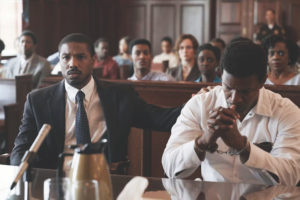The circus of ironies, secrets, revelations, redemptions, and moral victories in the documentary Circus of Books is dizzying, especially since it’s the story of a gay porn emporium that opened in West Hollywood, Calif. (with satellites in the Silver Lake and Sherman Oaks neighborhoods of Los Angeles), in the 1980s. The ironies begin with the fact that the stores were owned by a religiously conservative Jewish couple, Barry and Karen Mason, whose three kids grew up without a clue as to what their parents were doing. Besides their Circus of Books outlets, the Masons were major distributors of Larry Flynt publications and gay porn on cassettes and disks. The kids thought their parents owned a bookstore.

This astounding, at times hilarious, and moving film, which played the Provincetown International Film Festival last June, as well as other festivals — gay, mainstream, and documentary — never had a theatrical release, and is now available to stream on Netflix. It is directed (with grace) by the Masons’ daughter, Rachel, and is a personal and political testament to the era in which the LGBT community grew up. It’s personal because one of Rachel’s two brothers turned out to be gay and closeted, and political because the nightmare of AIDS weighed so heavily on the gay community while the porn business was soaring. Barry talks about employees who were lost to the disease, and how many of these young men were abandoned by their families.
Karen Mason, who was more devout than her husband, has the most profound arc in the film. A former journalist, she has to reconcile her faith with the source of the family’s generous income and daily encounters with the kinkier aspects of the business, such as aging star Jeff Stryker, whom John Waters dubbed “the Cary Grant of porno.”
The final irony of the film is that the internet killed the brick-and-mortar porn business, and that the film is being shot as the Circus of Books stores are closing. The culture wars of the late 20th century may look quaint today, but the moral force of the struggle remains as powerful as ever in an era when former Tea Partiers and evangelicals fuel Trump. Watching Circus of Books is a fabulous way to put it all in perspective.

There is very little irony — or sexuality — in the civil rights movie Just Mercy, but it’s hard to see how the true story of an African-American Harvard law grad, Bryan Stevenson (Michael B. Jordan), who works to free innocent men from death row in ’90s Alabama, could be anything but stone cold sober. The movie, directed by Destin Daniel Cretton (Short Term 12), which was released in theaters in January, is now available for streaming and on disk. And though it reaches back a few decades to a time when the racism that hovers over every personal interaction in Alabama is far more tacit than in the days of the KKK’s reign of terror, it is still a pertinent cry for justice.
Which is why Just Mercy has merit, despite its black-and-white morality, a phrase that is especially apt in a narrative where all black people are noble and all white people, whether they feel guilty or justified, wear the stain of injustice. No churches are being bombed, and despite ominous threats of police power, terror is contained in the exercise of “legal” procedures. In this movie, the execution of undeserving black men by the justice system is seen as little different than the brazen lynchings of yore, except that there’s no demonic giddiness to it. Indeed, the only noteworthy irony in the movie is the fact that Stevenson is situated in Monroeville, Ala., Harper Lee’s hometown, where traces of To Kill a Mockingbird are a tourist draw. For white folks, maybe.
The movie’s focus is the exoneration of one death-row inmate in particular, Walter McMillan, who was convicted with such flimsy and concocted evidence, it’s clear from the beginning that Stevenson simply has to prevail. McMillan is played by Jamie Foxx, who delivers another flawless performance, and Jordan, too, does a nice job conveying the young man’s innocence and passion with tasteful restraint. Brie Larson, as Stevenson’s legal office sidekick, gives some juice to a nothing character, and Tim Blake Nelson, as an inmate and false witness, livens things up a bit. The movie strains to be serious, but, considering that the racism of our justice system remains an omnipresent issue, the effort is worthwhile. And for most of its two hours and 17 minutes, Just Mercy delivers gripping courtroom drama.

The Pixar 3D-animation movie Onward had a March 6 theatrical release that was quickly undone by the coronavirus, and it was rushed online and on disk. The reviews of this story of wizards, spells, elves, and minotaurs in a contemporary American setting were mixed: though critics appreciated the richness of Pixar’s animated world, they were divided on the narrative, which some felt was too predictable.
I’m perplexed by these assessments, because the story, about two fatherless elf brothers who bring their old man partially (from the waist down) back to life with a magic spell, is decidedly quirky and fresh. The basic moral message of the film — about self-confidence, father-love, and brotherhood — is timeless and classic (and not sexist), and that’s not the same as being clichéd. The fantasy elements in the film arise from a video-game aesthetic, which Pixar turns into something curious and original. It’s a wonderful adventure, with a beautifully understated climax. And coronavirus interruptus shouldn’t diminish its popularity.
